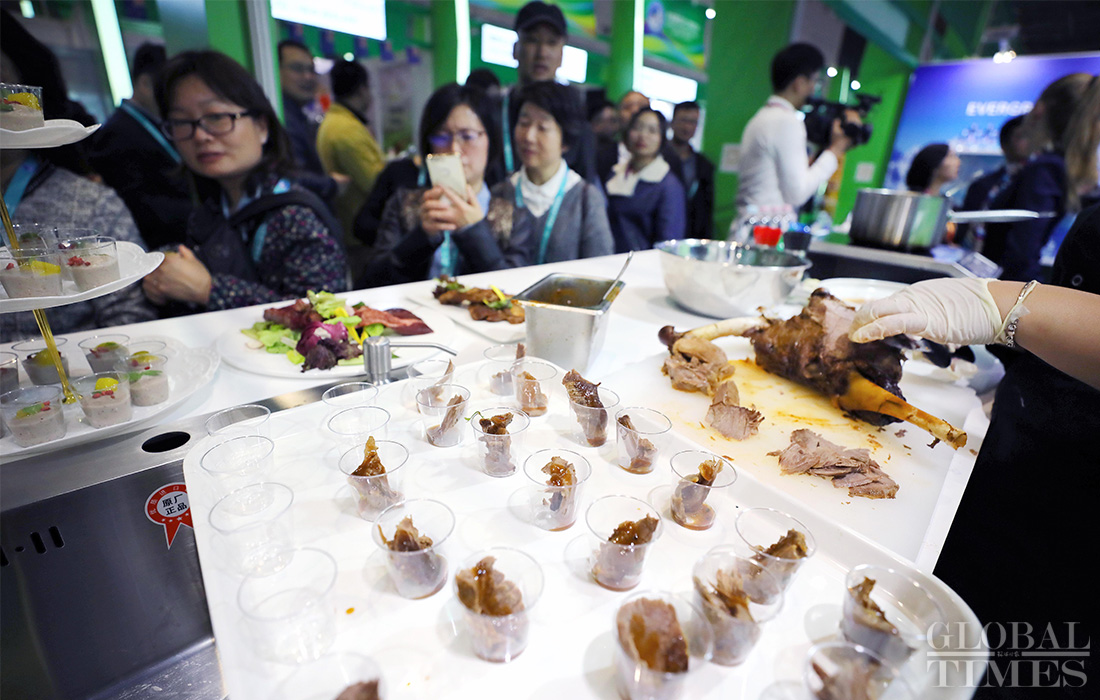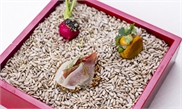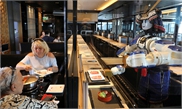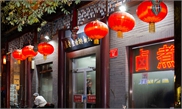SOURCE / INDUSTRIES
New Michelin guide to Beijing questioned by local diners

A chef from a Michelin star restaurant prepares food to share with visitors at the exhibition area for Food & Agricultural Products during CIIE 2018 in Shanghai. Photo: Yang Hui/GT
The Michelin Guide officially released the Beijing Michelin Guide 2021 edition on Monday morning, in which 30 restaurants in Beijing were given stars. However, it seems that Michelin may be losing its authority among Chinese diners, with many questioning the rankings in the new guide.
A total of 30 Beijing restaurants have been given stars, with two restaurants getting three stars, two getting two stars, and 26 getting one star. King's Joy and a branch of Xinrongji in Beijing's Xinyuan South Road were awarded three Michelin stars while Wulixiang and Jingji got two.
However, some diners were bemused. "King's Joy is the worst high-end vegetarian restaurant I have ever been to," said a user named Philyou12345 on Sina Weibo.
"It seems that Michelin is losing its authority in China. Michelin China is working tirelessly to lose its charm when it comes to rating Chinese restaurants," said Lei Silin (pseudonym). Lei has a Sina Weibo account @Caisilin Raist, which has more than 861,000 followers.
"Michelin was thought to be sacred by Chinese people as it was far away from our daily life, but when Michelin gives a high rating to a restaurant that we often go to and which isn't that good, and Michelin does the same thing again and again, we will no longer think it is sacred. As a result, it will gradually lose its charm in China," Lei told the Global Times.
Talking about the discrepancy between the Michelin Guide and Chinese consumers' opinions, Wei Shujie, president and CEO of Michelin China, told chinanews.com on Monday that taste in food "is personal and Michelin welcomes and respects different opinions."
"The list reflects the disarray of Michelin's standards in evaluating Chinese food. It is not evaluated from the most important point, which is the food's taste," a previous judge of the Michelin Guide surnamed Yang told the Global Times on Monday.
"The guide is more like a recommendation list for Beijing snacks rather than an authoritative Michelin Guide," Yang said.
The first Michelin guide was created in 1900 and it entered Asia in 2008. A guide for Shanghai came out in 2016, then one for Guangzhou in 2018 and Beijing in late 2019.
According to the guide, one star signifies "a very good restaurant," two stars are "excellent cooking that is worth a detour," and three stars mean "exceptional cuisine that is worth a special journey."
"When a list evaluates something that is closer to our lives and is not as good as we think it is, its authority will naturally decline," Lei said.



